
Mathis James Reed was an American blues musician and songwriter. His particular style of electric blues was popular with a wide variety of audiences. Reed's songs such as "Honest I Do" (1957), "Baby What You Want Me to Do" (1960), "Big Boss Man" (1961), and "Bright Lights, Big City" (1961) appeared on both Billboard magazine's R&B and Hot 100 singles charts.
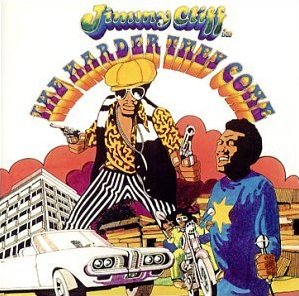
The Harder They Come is the soundtrack album to the film of the same name, released in 1972 in the United Kingdom as Island Records ILPS 9202. It was issued in February 1973 in North America as Mango Records SMAS-7400. It peaked at No. 140 on the Billboard 200. In 2021, the album was deemed "culturally, historically, or aesthetically significant" by the Library of Congress and selected for preservation in the National Recording Registry.
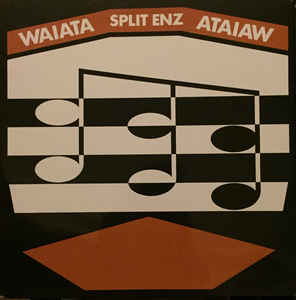
Waiata is the seventh studio album by New Zealand new wave band Split Enz, released in March 1981. Its Australian release was titled Corroboree. Waiata is the Māori term for song and singing, while corroboree is an Aboriginal term. According to Noel Crombie the intention was to name the album using a word from the natives of every country it was released in. This did not go ahead and the only country to adopt this change was Australia. The rest of the world kept the New Zealand title Waiata.
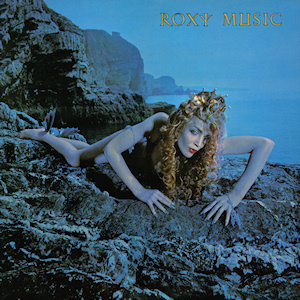
Siren is the fifth studio album by the English rock band Roxy Music, released in 1975 by Island Records. It was released by Atco Records in the United States.

Hard Nose the Highway is the seventh studio album by Northern Irish singer-songwriter Van Morrison, released in 1973. It is his first solo album since his 1967 debut Blowin' Your Mind! to contain songs not written by Morrison. A cover version of the song "Bein' Green", usually associated with Kermit the Frog, is included, as is a take of the traditional song "Purple Heather". The album also contains the single "Warm Love," a fan favourite.

Mister Magic is the fourth album by jazz saxophonist Grover Washington Jr., released in February 1975. The album topped both the soul and jazz albums chart and peaked at number ten on the pop chart.
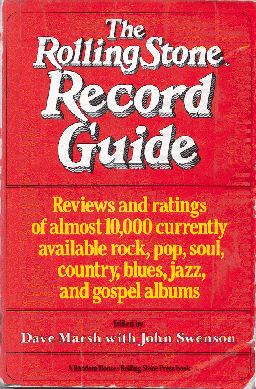
The Rolling Stone Album Guide, previously known as The Rolling Stone Record Guide, is a book that contains professional music reviews written and edited by staff members from Rolling Stone magazine. Its first edition was published in 1979 and its last in 2004.

Joe Cocker! is the second studio album by English singer Joe Cocker, released in November 1969. Following the template of his first LP, the album features numerous covers of songs originally performed by Bob Dylan, the Beatles, Leonard Cohen, and future touring partner Leon Russell. Cocker also co-wrote one song, "That's Your Business Now", with Chris Stainton, who was a frequent songwriting partner.
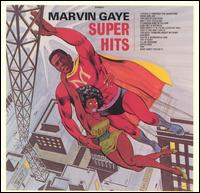
Super Hits is a compilation album by American soul singer, songwriter, and producer Marvin Gaye. It was released in 1970 by Motown's subsidiary Tamla Records and compiles Gaye's pop-R&B singles recorded from 1962 to 1969.

It's Only a Movie is the seventh and final studio album by the British progressive rock band Family, released in 1973, and their last original studio album before they disbanded that year.

The Battle is an album by American country music artist George Jones released in 1976 on the Epic Records label. It is Jones’ 52nd Album Release.

Aretha's Greatest Hits is the third compilation album by American singer Aretha Franklin. Released on September 9, 1971, on Atlantic Records, the compilation contains three new recordings: "Spanish Harlem", "You're All I Need to Get By" and "Bridge Over Troubled Water".

(For God's Sake) Give More Power to the People is the third studio album by American soul group the Chi-Lites, produced and largely written by lead singer Eugene Record. The album was released in 1971 on the Brunswick label.
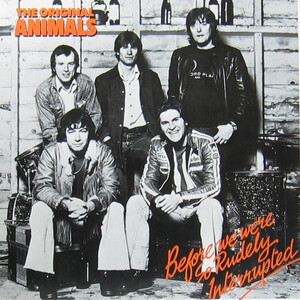
Before We Were So Rudely Interrupted is a 1977 reunion album by the Animals. They are billed on the cover as the Original Animals.

Ronnie Lane's Slim Chance is the second solo album recorded by Ronnie Lane, one of the founders of Small Faces and Faces, after he left Faces to live on a farm in Wales. In homage to his perceived chances of commercial success, he named his band Slim Chance. Six of the thirteen songs on this album were originals written by Lane, the rest of Slim Chance, and Lane's wife, Kate Lambert; the remainder were covers, including a new version of the Faces track "Stone".

Gimme Some Neck is the third solo album by English musician Ron Wood, released in 1979. It was a minor hit and his best performance on the US charts to date, peaking at number 45 on Billboard during a 13-week chart run. The album artwork features illustrations drawn by Wood, with a self-portrait in the center of the front side.
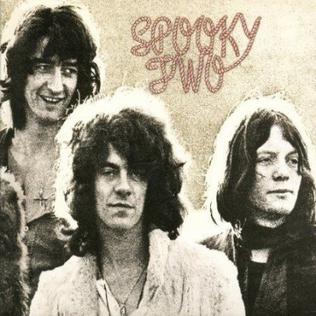
Spooky Two is the second studio album by the English rock band Spooky Tooth. It was originally released in March 1969, on the label Island Records.

"Love Stinks" is a song written by Peter Wolf and Seth Justman that was the title track of the J. Geils Band's 1980 album Love Stinks. The song was released as a single and peaked in the US at #38, spending three weeks in the Top 40. In Canada, the song reached number 15, as it did on WLS-AM in Chicago.

Serving 190 Proof is a studio album by American country music singer Merle Haggard, released in May 1979. It reached Number 17 on the Billboard Country album chart. Two singles were released and both peaked at number 4 on the Billboard Country Singles chart — "My Own Kind Of Hat" and "Red Bandana".
"Life's Little Ups and Downs"' is a song originally recorded by Charlie Rich. Written by his wife, Margaret Ann Rich, the song appears on his second Epic album, 1969's The Fabulous Charlie Rich. His rendition spent eleven weeks on the country music charts in 1969, peaking at #41.



















